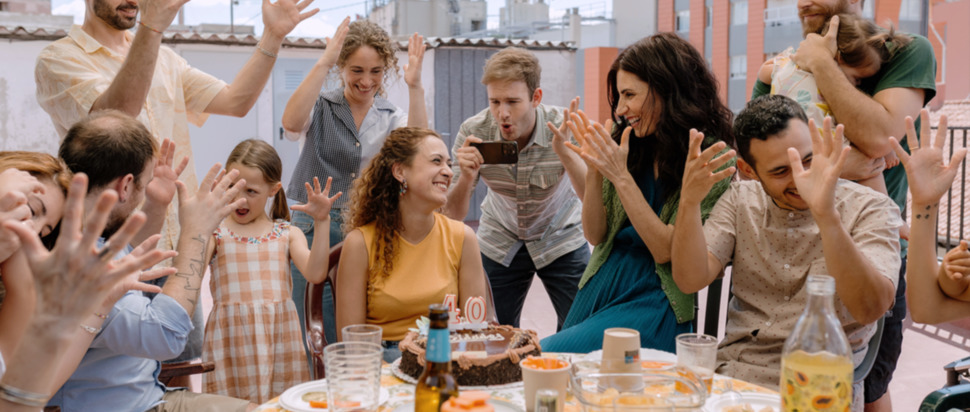Deaf
Eva Libertad's quietly urgent family drama Deaf reckons with disconnection and persisting pain
Eva Libertad’s Deaf is an intimate domestic drama of disjunctures and interiors. She engages us with a difficult conceit: a mother who can’t hear her baby cry.
Miriam Garlo plays Angela, a deaf woman pregnant with her first child. She is succoured by Hector, her attentive and proactive husband, sensitively acted by Álvaro Cervantes. He is a hearing person who's fluent in sign language and a supportive advocate for her autonomy (in both medical consultations and social gatherings, he tries to mediate with tactful gestures to involve her) and together, they are a loving, mellow pair. With great care and intention, they get provisions in order; they rally the proverbial village. However, come the birth of their baby girl, Ona, the film finds its charged vein as the reverberations of Angela’s dysphoria invade their life, and their simpatico union gradually fragments (“But it is harder with Ona now.” “Of course, everything’s harder now.”).
We watch a bifurcated world turn with indifference; there are hearing people and there are deaf people. The film lucidly demonstrates the hostility of such a societal make-up, and most perceptively, how it inexorably infects even devoted homes. You feel complicit in Angela’s distress, the essential exclusion she has to contend with; the abasement of taking up space. Whether interacting at her kids' nursery or with fellow nightclub patrons, constant, distorted reflections of her personhood orbit her. People’s pre-disposition to ogle, impose, or patronise with inept interpretation is her dehumanising everyday. But the world’s unsparing reception finds its most painful note in the disconnect with her child. Garlo is stunning in her character's soul-baring state, reacting with numbness when reality catches up to her dread, fulfilling her foreboding. The stultified bond with her baby has put her very constitution on trial, and it feels as if nature’s rendered judgment is, ruthlessly, that of incompatibility.
The emotional beats of Deaf strike with cudgel force, as Angela moves from participant to spectator in her child’s early development. This feels reminiscent of language-as-a-relationship-barrier in Past Lives (2023) – “You dream in a language that I can’t understand. It’s like there’s this whole place inside of you where I can’t go”. Hector’s more realised, direct line of communication with Ona strains Angela and the attendant sense of isolation drives her to defensive conspiracy, projecting distrust – “I’m outside of everything”. As her hopelessness and calcified resentment threaten to consume her, there are shades of Maggie Gyllenhaal’s implosive The Lost Daughter (2021), compellingly complicating what we consider to be a mother’s onus.
The pathos of a fractured relation and the disorienting odyssey of maternity will always make for intense, vital filmmaking. Deaf is at once gentle and fraught; exacting but not defeatist. It penetrates as it confronts ableism’s mocking spectre and a mother’s compounded plight.
Deaf has its UK premiere at Edinburgh International Film Festival, and is released 12 Sep by Curzon; certificate 12A
